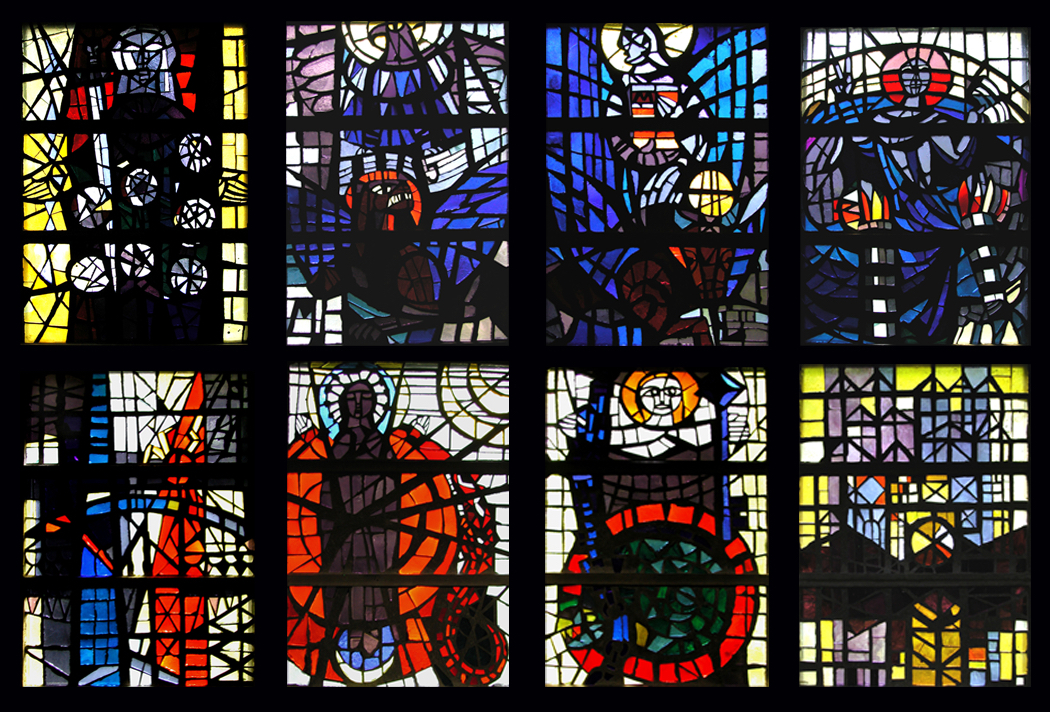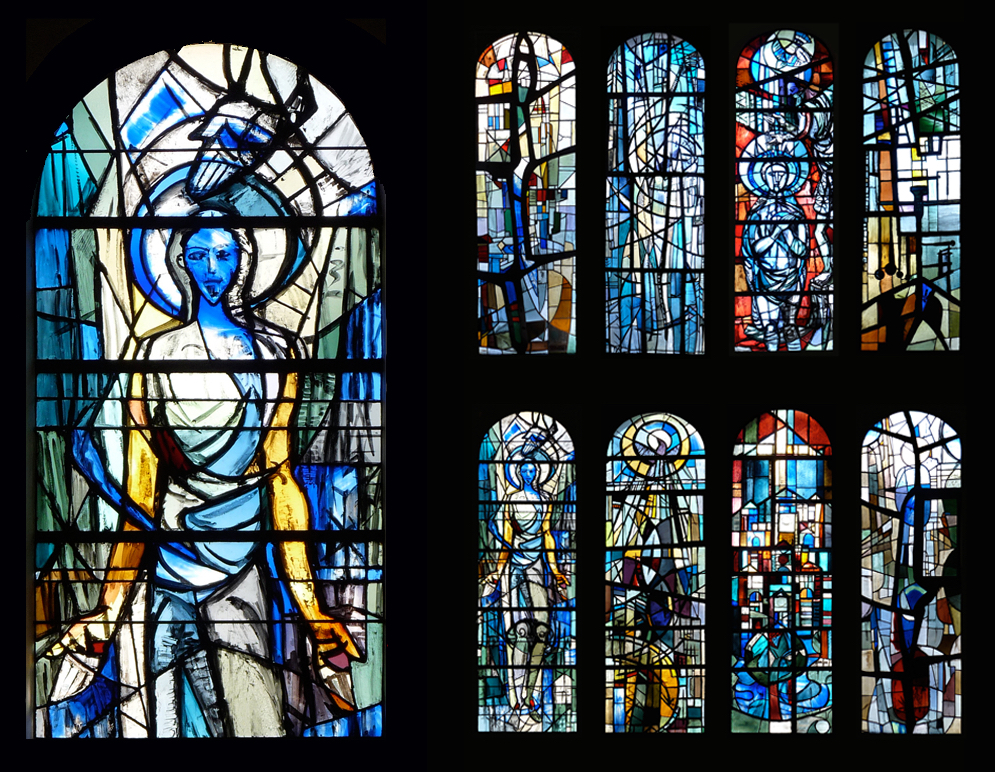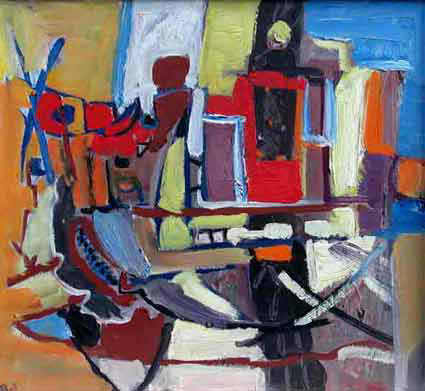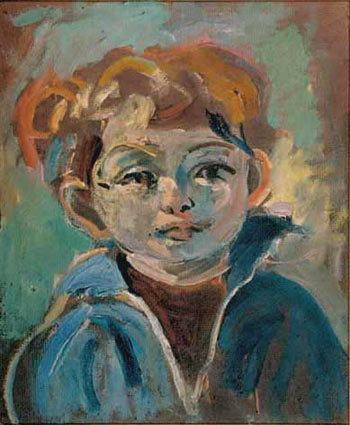In
1959 the parochial hall in Winterthur-Veltheim gives him the chance
to show the public the culmination of his research on the theme of
Jacob and the Angel, with a sgraffito representing Jacob’s Ladder
and a tapestry showing the Struggle of Jacob and the Angel.
After the stained glass windows unveiled in "l'Eglise
Réformée Française" of Winterthur in
1957, Wehrlin produces in Elsau (ZH), between 1960 and 1962, a series
of 8 stained glass windows (glass and lead) which are considered by
many to be the final development of his art.

Glasswindows of French Reformed Church 1957
l 
Glass windows of the Church in Elsau 1960/62 (CH/ZH)
In 1961, the Sulzer factories in Winterthur order two huge mural decorations,
with one measuring 4.1m x 27m, whereas in the following year for the
« Maison pour la Protection de la Propriété Intellectuelle
Suisse », a sgraffito entitled « Transformation »,
destined to be used to decorate the headquarters of this organisation
in Berne.
 Study for the mural French reformed decoration of the Sulzer
factories 1961
Study for the mural French reformed decoration of the Sulzer
factories 1961
Oil on card - 19 x 106 |
When
he disappeared on the 29th of February, 1964, at the age of 60, he had
just finished illustrating Hôlderin’s poems of folly for the
Orelli Füssli publishers in Zurich. He was working on three stained
glass window projects, which were to be partially finished by Heinrich
Bruppacher, a young Winterthur painter that he encouraged to take up painting
in 1950.
 Abstract
composition 1962
Abstract
composition 1962
Oil on card - 34 x 37
|

Portrait of Jacques dressed in blue 1957
Oil on isorel - 46 x 38 |
In
conclusion and to use an evaluation made by BRUPPACHER (1930-2010) when going back
over WEHRLIN’s life at the Winterthur museum in 1965 :
« WEHRLIN was not interested in finishing things, as this would
have meant immobility and then repetition. He understood perfectly well
that painting is life and life evolution ; that the painter is always
standing between the beginning and the end and that his work can not
be the final definition of things, but rather the expression of a progression,
with its stages and possibilities. On the strength of this conviction,
he learned to resist the temptation of superficial success, which he
could very easily have obtained. The struggle of Jacob and the Angel,
a theme which always obsessed him and which he finally expressed in
a tapestry, is a perfect symbol of his life ».
(Jacques Wehrlin - September 2010)
|





